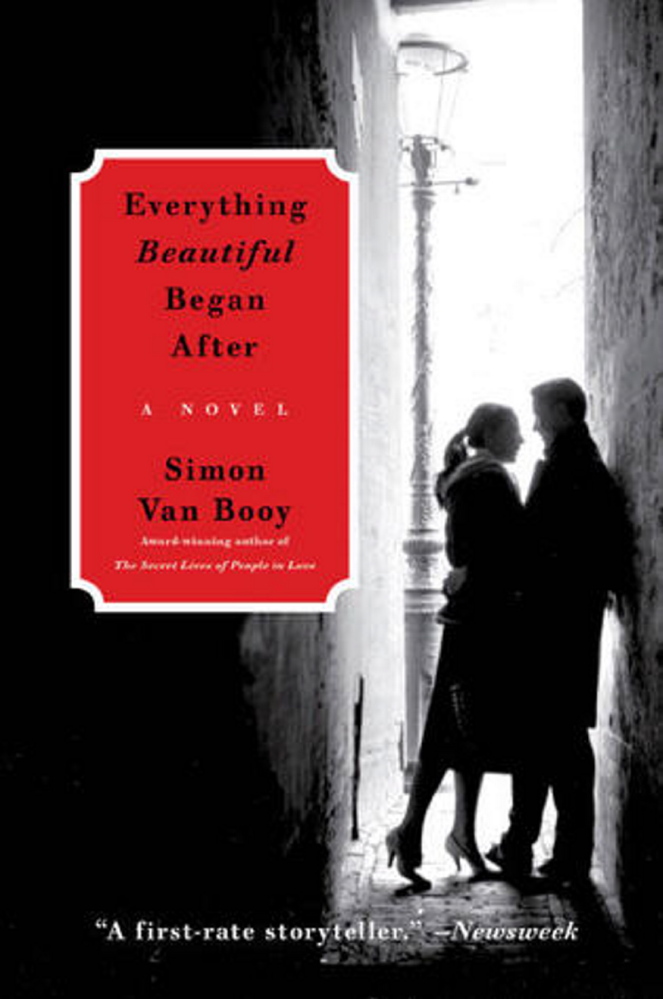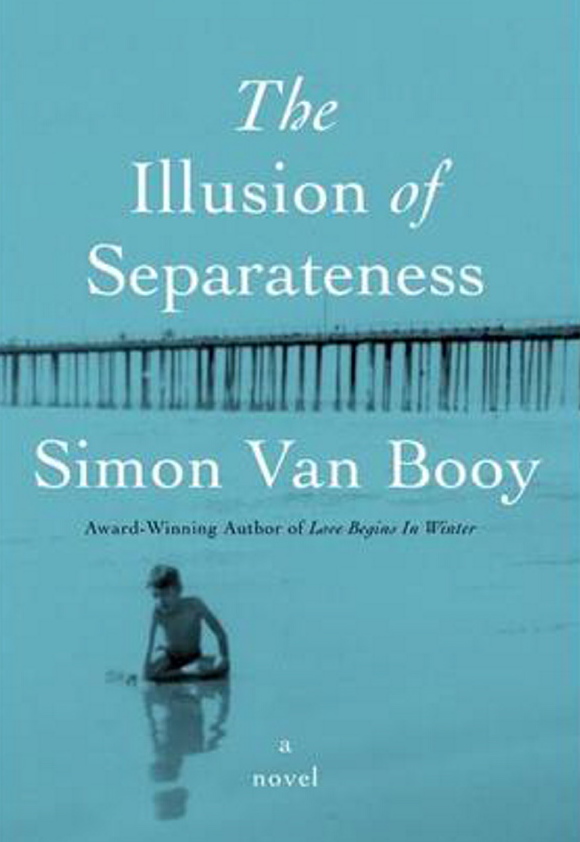Simon Van Booy is one of the most fascinating and arresting literary stylists writing fiction today. I was utterly spellbound by his early novel, “Everything Beautiful Began After.” And I was completely drawn into his new novel, “The Illusion of Separateness.” Yet the two books couldn’t be more different. This is refreshing, for the latter demonstrates that he is not a writer to be corralled by confidence in what has worked for him before.
To further enrich the shift of narrative voice between the two books, “The Illusion of Separateness” is not a story that can be easily recounted. The title is perhaps its clearest distillation. World War II is a unifying motif. The story revolves around a handful of major characters with direct and indirect ties to two seminal events that take place during the war. But this is not a war book in the way you might think. The rich palette Van Booy draws from in forming his characters is startling in its sharply variegated hues.
We have an aging Axis veteran haunted by what he was compelled to do in the name of the Fuhrer, who was left with only half a skull from a wound. We also have a young blind woman who helps curate an exhibition on the war for the New York Metropolitan Museum of Modern Art. There is a Nigerian émigré boy living in France who becomes a famous Hollywood director. And an abandoned Jewish baby who is saved by grace, and raised by loving American parents. And also, an American who is blown out of the sky on a B-24 bomber run, who falls to earth but is saved by the image of his young bride in a photo taken on Coney Island.
In one sense, Van Booy tells an extremely simple story – but in a mammothly intricate manner. Narrative time in his hands is highly malleable. It is not that Van Booy dispenses with chronology as a unifying story element. But rather, that he bends and breaks it apart, creating something akin to parallel universes. From these he stitches together his story about quantum human connections that are all but invisible to the naked eye.
Van Booy is a delight to read. It is abundantly clear that the he is gifted with the perception of a Zen master, and the clarity of distillation of a haiku poet. I cannot resist sharing a few of his most arresting lines:
“‘Many things are hard, Danny. Life comes at you in pieces sometimes too big to avoid.’”
“The waiter brought gelato. But I couldn’t eat it. It would take time for hope to melt.”
“The scent of flowers lingers for a few days as though waiting for an answer.”
“Love is also a violence, and cannot be undone.”
“Anyone who is desperate or alone will agree there is comfort in routine.”
“Yet here I am, years later, between this page and your eye. Part of someone else’s story.”
Van Booy’s prose strikes deep, resonating chords. It is worth knowing that he has curated three anthologies of philosophy. This will attract some, but it should not deter others. In his heart he might be a philosopher, but on the page he is a storyteller of uncommon talent. His is an alchemy that will both entertain you and make you think. And that is a rare gold to be treasured.
Frank O Smith is a Maine writer whose novel, “Dream Singer,” a finalist for the Bellwether Prize, will be published as a trade paperback in the spring. He can reached via www.thewritinggroup.com.
Send questions/comments to the editors.




Success. Please wait for the page to reload. If the page does not reload within 5 seconds, please refresh the page.
Enter your email and password to access comments.
Hi, to comment on stories you must . This profile is in addition to your subscription and website login.
Already have a commenting profile? .
Invalid username/password.
Please check your email to confirm and complete your registration.
Only subscribers are eligible to post comments. Please subscribe or login first for digital access. Here’s why.
Use the form below to reset your password. When you've submitted your account email, we will send an email with a reset code.